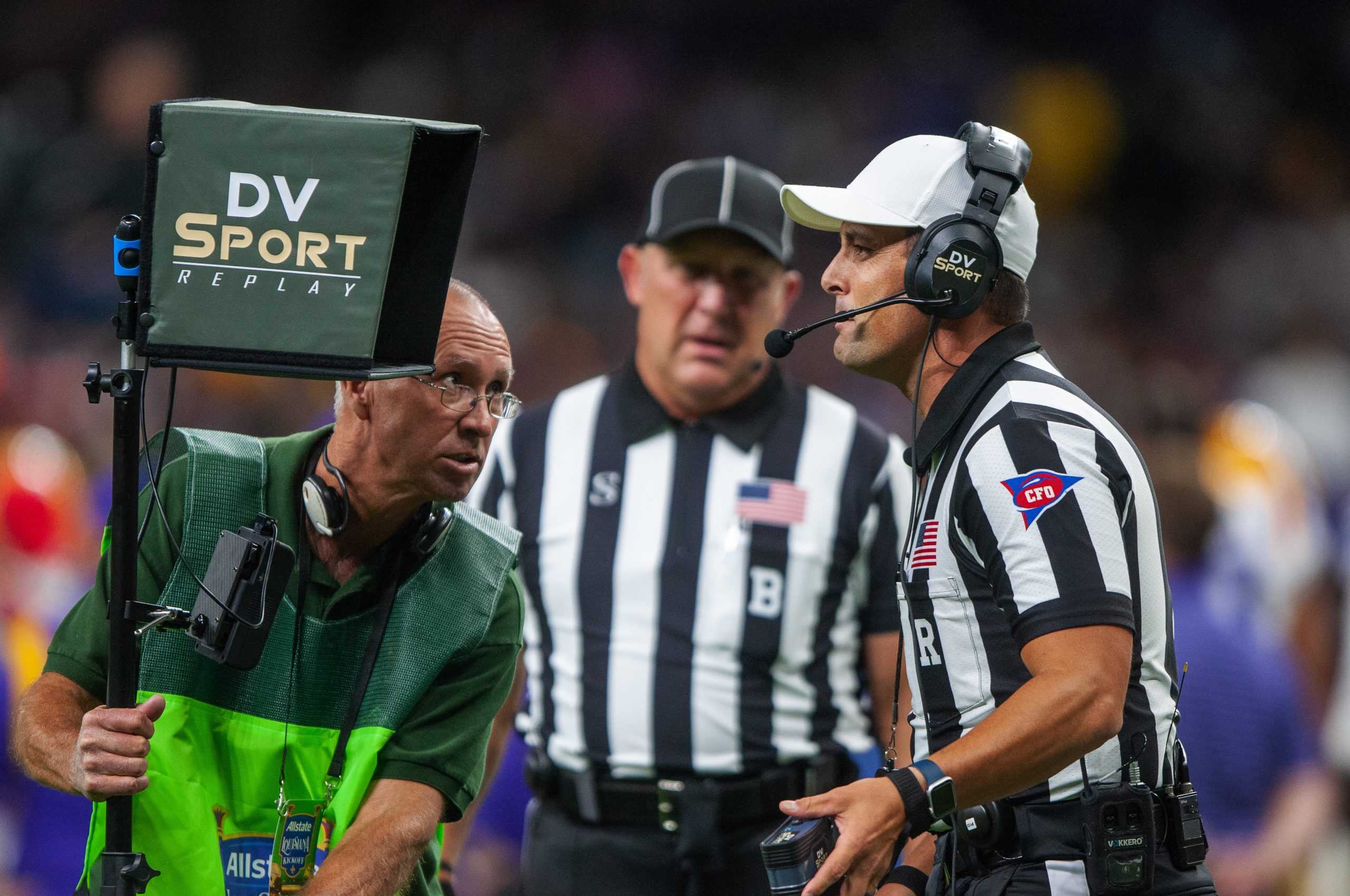After officiating a Biddy Basketball game, referee Earl Lennie and his colleague are approached by a spectator.
The man begins to berate the two on their officiating of his eight-year old’s basketball game. Expletives are involved. As bystanders start to look on, Lennie is asked what all the commotion is about.
“This gentleman just informed me that he doesn’t want to be here anymore, and he needs a police escort out of here,” Lennie said.
Chasing perfection is a never-ending marathon in any craft. However, in officiating, perfection is not only elusive, but it’s the only job in which you will hear constant outside noise. Outbursts like the one Lennie endured aren’t uncommon.
“We’re the only people on the field expected to be perfect, and nobody’s perfect,” NCAA baseball umpire Alex Zeigler said. “So it’s knowing you’re not going to be perfect, and going out there and still trying. It’s kind of like this endless game of just insanity almost.”
Being a referee is one of, if not the toughest, trades in sports. It’s an occupation that receives little to no appreciation.
“I never had the expectation of people coming up to me and saying, ‘Thank you,'” Lennie, now a Southland Conference basketball official said.
So, with all the flack that comes with holding the whistle, what’s kept these officials in the game for so long, and what sent them down this path in the first place?
If you ever talk to an NCAA referee, it’s pretty clear how they landed on their profession. Their resilience, perspective on life and view of the world are incredibly fascinating. It’s almost like they were destined to officiate.
“It’s almost in most people,” NCAA volleyball official David Dufrene said. “When you talk to people that officiate, they just want be a part of the game no matter what they’re doing.”
But their passion first came on the playground. At the core of it, officials love the game and want to contribute to it in some way.
“Anytime I walk on any place, if I’m not on the court in some way or on the field, I just feel like, ‘What do I do? Where do I belong?'” Dufrene said. “I couldn’t even relax to sit in the stands without being a part of the game in some sort of way. So I’ve always been that way.”
While becoming an official is far from a linear path, the common thread between each is their beginning. They’re at their local recreational park one day, and someone comes up to them and says, “You got a whistle?”
At 13, Lennie was enamored by one official that would ref his Biddy Basketball games. Lennie described it as almost effortless; he made it look easy.
“He had the coolest hand signals I’ve ever seen in my life,” Lennie said.
That official was Dufrene. Lennie wanted to be just like him, and for good reason. Dufrene has refereed NCAA volleyball across the SEC, AAC, Sun Belt, Conference USA, WAC and Southland conference for nearly two decades.
Lennie got his first officiating gig for a preseason basketball tournament in Harahan, Louisiana. He was only a year or two older than the kids playing in the game.
After getting the good news the day before the tournament, Lennie immediately called his mother to come get him. They had to make an urgent trip to the Converse outlet in Elmwood to pick up both black pants and shoes. And that’s where it started.
Officiating tends to call the right people into action. For Lennie, all it took was observing Dufrene’s smooth operation to feel inspired.
However an NCAA referee may first find their way onto the floor, their path towards officiating begins at your local recreational park, refereeing little league baseball or Biddy Basketball. Even NCAA officials need to start somewhere.
Those who stick with it eventually move up to the high school level. In Louisiana, aspiring high school sports referees register with a local officiating association, participate in local associate training and complete a rules clinic, going over any new rule changes or issues that the officials had the previous season. To remain certified, the referees in training must pass a rules test and attend an officiating camp biennially.
Once you’re certified, congratulations: You’re officially a certified high school referee.
High school officials are inclined to take every game they can get. After all, you can only become a better referee with the proper reps. However, aspiring collegiate officials must attend camps to make the jump to the NCAA.
NCAA referees aren’t directly hired by the NCAA; they’re independent contractors hired by the collegiate conferences themselves. At these camps, officials must showcase their skills to their potential future employers, the conference officiating coordinators. Some camps cost referees hundreds or thousands of dollars to travel across the country to get their golden opportunity.
In 2011, Zeigler was a University of New Orleans student in his early 20s. He began officiating baseball after graduating high school and wanted to take the next step: becoming an NCAA umpire.
NCAA baseball works differently from other officiating paths. Umpires work their way up the minor leagues before getting promoted to major league umpire or beginning their careers as independent contractors for collegiate conferences.
Zeigler found a month-long camp in Daytona Beach that could secure him a position as a minor league umpire. The program would cost Zeigler thousands of dollars, and there was no guarantee that he would be one of the 22 chosen from the 175 aspiring minor league umpires attending the camp.
But Zeigler took the swing and never looked back. He was a nine-year minor league umpire before becoming an umpire for the SEC, Sun Belt and Southland conferences in 2021.
“I don’t know what I would’ve done if I didn’t get in,” Zeigler said.
The key to becoming an NCAA referee is the desire to improve; you must want to perfect your craft. That means officiating every game possible to get the maximum number of reps, taking advantage of the NCAA’s resources like in-person camps and online classes, tests and quizzes to test their knowledge of the rulebook and even practicing their hand signals in the mirror.
“Go in the mirror and do it until it looks good,” Lennie said. “Because if you don’t think it looks good, nobody else thinks it looks good.”
But these referees don’t view it as a job. They first got involved with the art of officiating for their love of the game. The officials are responsible for giving these sensational sports that we all partake in, invest in, watch and love what they deserve for the fans, players and coaches.
“It’s never been a job,” Zeigler said. “I get the best seat in the house, and I get paid to do it. So there’s no complaints from me there.”
Getting paid to watch games? For the passionate sports fan, it doesn’t get much better than that.
There is a desperate need for more officials across all sports, especially at the lower levels. It’s hard to play sports without somebody willing to go out there, blow the whistle and make the tough calls to keep the game fair.
For those interested in trying their hand at officiating, the best place to start is at your local recreational park. Go up and introduce yourself to a referee that you take pleasure in watching. Let them take you under their wing and teach you what it takes to become an official. Register to become a certified referee under a local high school association and start refereeing games. With the proper practice, training and reps, you too could become an NCAA official, and why wouldn’t you?
After all, as both Dufrene and Lennie would tell you, “It’s the greatest part time job in America.”







